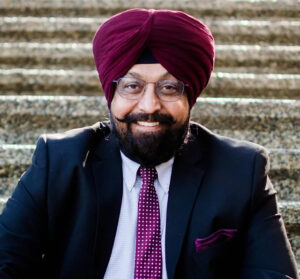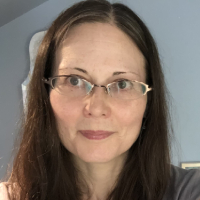
Code professional profile: Manjit Sohi
With more than 25 years of building inspection experience for various municipalities in British Columbia, Manjit Sohi contributes to make his community safe and protect its occupants
After meeting Manjit Sohi, B.Sc., RBO, CRBO, principal at Sohi Consulting and Code Solutions Inc. in Vancouver, British Columbia, you’ll come away with a sense of greater purpose and understanding about the importance of the building inspection industry. He has learned much about building inspection from his mentors and has worked to instill his knowledge and passion in others.
 When he arrived in Canada in 1987 from India, Sohi had a degree in mathematics and physics but was hesitant to pursue more schooling. His uncle was a realtor and suggested that he could get into construction. Sohi attended the British Columbia Institute of Technology and learned carpentry framing. After he started a job as a laborer, however, he began to look for other careers in construction.
When he arrived in Canada in 1987 from India, Sohi had a degree in mathematics and physics but was hesitant to pursue more schooling. His uncle was a realtor and suggested that he could get into construction. Sohi attended the British Columbia Institute of Technology and learned carpentry framing. After he started a job as a laborer, however, he began to look for other careers in construction.
“I pulled out the University of British Columbia program guide and read through the whole thing and marked a few pages,” Sohi said. “On one of them I asked my uncle, ‘What’s a building inspector? What do they do?’ because I read the course description and thought this was something that I could do. That’s how it started. And if you would have asked me back then ‘What is a 2×4?’ I would have said, ‘eight.’”
He spent about 25 years in municipal government at various levels starting as a plans examiner, becoming a building inspector and then managing three departments. Sohi’s day-to-day job as a building official involves ensuring that the built environment complies with current regulations and the codes and whether they are related to life safety, local zoning by-laws and regulations for building height. In essence, regulations fall under two aspects: North American regulations and Commonwealth regulations, which is the protection of human life.
“Whether that’s life safety to prevent falls on stairs in the dark, fire protection or regulating the temperature of hot water that comes out of the tap,” Sohi explained. “The second factor is protection of property, in relation to what your neighbor is doing – your protection from your neighbor and your neighbor’s protection from you. In the day-to-day aspects of my job, I’m mainly performing plans examinations or building inspections.”
Engaging in frequent conversations with contractors, he’s a firm believer in explaining why they need to do something instead of what they need to do. Back in 1988 when Sohi was working on a construction site, he was always curious. One day, he asked his supervisor if he could follow the building inspector and he started asking questions. “We were doing firestopping and I didn’t know what it was for. It didn’t make any sense so I asked the building inspector why he made us put up pieces of 1×2, and he took the time to explain firestopping to me,” said Sohi.
He tries not to tell the contractors what to do but instead explains what the issues are, so they can understand the concepts behind what they’re being asked to do. “To me, it’s helping them to understand and I take great pride in these conversations with contractors, and even homeowners, or anyone impacted by the building construction process.”
Sohi loves the public service aspect of his work. When he started working in the public arena, he was told that in terms of his job as a regulator, it would be highly unlikely that people would like him since regulators tell people what to do. “However, you also have to remember that you’re a public servant,” Sohi said. “Whether my job was as an examiner or a building inspector or as a manger, it always seemed to me a position of a public servant. I enjoy talking to people, explaining why something needs to be done for safety.”
Mentors have clearly played an integral part in Sohi’s career. His first supervisor was a retired U.S. Army major. “He was the one who told me that I was a public servant, and at the end of the day you’re here to serve the public. You would not have a job if they’re not standing on that side of the counter,” Sohi said. The second thing his mentor taught him was that when someone shows up at the counter, it’s his job to explain to them the intent that the building code is trying to achieve.
“My mentors imprinted on me the public service side of it and the education side – that as a regulator you educate and assert. They always kept the focus on protecting the health and safety and protection of property, but also on the public service part of the job. They played a major role in shaping my life, my thinking and my success in this profession,” Sohi added.
Sohi has more than 25 years of experience as a building official, chief building official and manager of permits and inspections with various municipalities in British Columbia, including as interim chief administrative officer for the Building Officials Association of British Columbia. He is vice president of the Global Membership Council of the International Code Council and serves on the Accreditation Committee of the International Accreditation Service. He is also president of the Alliance of Canadian Building Officials Association. Due to his extensive experience, Sohi does building development consulting, private consulting and work for some of the First Nations in the Vancouver area. Although he is pleased with his career accomplishments, he also has specific goal for the future. “Getting a career, getting a job and making a living are all necessities of life. I have accomplished those,” he said. “But I’d consider myself successful if I’m able to train one young person from the First Nations to become a building official.”
Looking toward the future, Sohi is excited about diversity in the industry. In the early years of his profession when he was able to attend the first conference of the Building Officials Association of British Columbia — of which he is a past president — there were just a handful of people of color, very few women and not many young people. “I’m really excited about the changes that I’ve seen. If you look from the back of the room today, you’ll see a lot of young people, people of color, some First Nations and women coming into the industry. The diversity in the industry is a change that I’ve seen over the last 20 to 25 years,” said Sohi.
To anyone considering a career in the building inspection industry, Sohi notes that it is a giving profession. “The gifts are the satisfaction that you have contributed within your own community by making it safe. You have contributed in your own community by helping its economy, and you’re contributing to protect the occupants. Those could be your grandchildren one day.”







